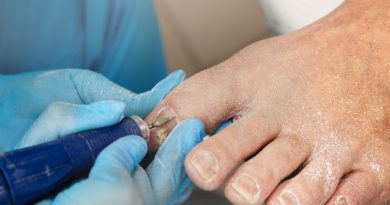How Does Bone Loss Affect Your Teeth?
If you have missing teeth, you need to know that this can affect your bone and tissue. This includes the bone under your neighboring teeth. While traditional methods such as dentures and dental bridges can help you eat and speak again, they don’t protect against bone loss. Here are some of the reasons why missing teeth can affect your bone and tissue.
Periodontal disease
Luckily, there are a number of treatments available to help you restore your teeth and gums. These treatments include guided tissue regeneration and bone grafting. The former involves placing a barrier around the affected tooth to stimulate bone growth. The latter involves transplanting bone from other parts of the body into the affected area. Other treatment options include dental implants and bridges.
Periodontal disease is caused by the buildup of bacteria and food debris on the teeth. These bacteria are naturally present in the mouth, but when conditions allow them to multiply, they can become harmful to your health. Not getting regular dental cleanings and not flossing regularly can increase the number of harmful bacteria in your mouth. In early stages of the disease, the gums start to recede from the teeth and form pockets between them. These pockets hold harmful bacteria that can lead to tooth loss and gum disease.
Read more: Does Everyone Have Wisdom Teeth
Smoking
Smoking can damage your teeth and gums. It can also cause a tooth to become loose. Gum disease is the result of bacteria that collect in the pockets between the gum and teeth. Smokers have a lower immune system and are therefore more susceptible to infection. As a result, teeth decay and bone loss can occur.
Quitting smoking will improve your oral health. The immediate benefits of quitting smoking include a reduced risk of oral cancer and gum disease. However, it’s also important to continue your oral hygiene routine. That means brushing your teeth twice a day and flossing your teeth daily. You should also visit your dentist at least twice a year to keep your mouth healthy.
Injury
Bone loss in your teeth is caused by bacteria eating away at your jawbone, and it affects the overall health and appearance of your teeth. You should seek professional treatment as soon as you notice thinning of your teeth or jawbone. Your dental care professional will be able to recommend various treatments.
Loss of jawbone can lead to loose teeth and possibly tooth loss. Low bone density may also cause loose dentures in patients with toothless jaws. Bone loss also affects the ridges in the mouth that hold dentures in place, and these negatively affect the fit of your dentures. Consequently, osteoporosis sufferers may have to replace their dentures more often than other patients.
Vitamin D deficiency
Vitamin D deficiency is linked to several health issues, including osteoporosis, type 1 diabetes, and breast, colon, and prostate cancer. It can also affect your teeth, since it is needed for the proper development of the enamel on your teeth. Vitamin D is also necessary to build strong bone, and deficiency can lead to weakened bone structure. Fortunately, supplementation can help prevent these problems.
The vitamin plays a vital role in maintaining strong teeth. Vitamin D helps the body absorb calcium and phosphorus from food. Because teeth are made of bone, a lack of vitamin D can damage your teeth and bone structure. In addition to causing tooth decay, a lack of vitamin D can lead to bone abnormalities and brittle bones.
Bisphosphonates
If you have osteoporosis, your teeth may be at risk. This condition causes the jawbone to weaken, which can affect the alignment of your teeth and can cause damage to the roots of your teeth. The good news is that you can take medications to treat this condition. One of the most common types of medication is bisphosphonate, which is an oral medication that strengthens bones. Bisphosphonates are often prescribed as an adjunct to calcium and vitamin D therapy.
You can also do some simple exercises to improve your bone health. The best exercise to improve your bone density is weight-bearing exercise. A healthy diet with plenty of vitamin D is crucial to your bone health. Also, avoid smoking and excessive alcohol intake. You should also report any problems with your teeth or gums to your dentist.
Treatment options
Treatment options for bone loss that affects teeth and jaw vary depending on the severity and cause of the problem. Dental professionals can determine which treatments will be most effective for a patient’s condition and recommend the best course of action. Depending on the cause, treatment options may include dental implants to replace missing teeth and stimulate bone growth. This can help restore the natural balance between resorption and osseointegration.
Bone-resorptive agents such as bisphosphonates can be taken orally or intravenously to help strengthen the bones. However, these drugs should not be stopped abruptly because the bone may weaken or break. In some cases, stopping the medications prematurely can lead to osteonecrosis, a degenerative condition in the jaw.




